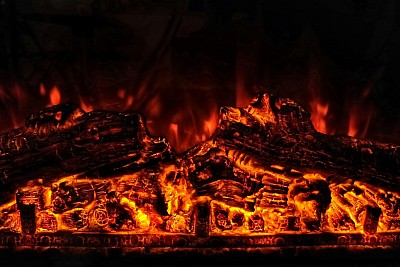Blogs
Having the form but not the power
“And when He was come into Jerusalem, all the city was moved, saying, Who is this? And Jesus went into the temple of God, and cast out all them that sold and bought in the temple, and overthrew the tables of the moneychangers, and the seats of them that sold doves, And said unto them, It is written, My house shall be called the house of prayer; but ye have made it a den of thieves.” (Matthew 21:10-13)
What a tragic sight it must have been when Jesus entered the temple! There stood the sacred house of God—shining in earthly splendor, admired by the crowds, bustling with activity. It had all the markings of reverence, all the outward trappings of devotion. And yet, when the Son of God looked upon it, what did He see? Not a house of prayer, but a den of thieves.
How dreadful that the very place meant for communion with the Almighty had become a marketplace for the greedy! The form was there, but the fire—the purity of worship—was nowhere to be found. And so He, the one with the eyes of flame, overthrew their tables and drove them out. It was not enough for it to look holy. It must be holy.
I fear that many churches today are no different from that temple. The building may shine with grandeur, the services may run like clockwork, and the crowds may gather faithfully. But what of the heart of it? Is it not written, “Having a form of godliness, but denying the power thereof”? (2 Timothy 3:5). Oh, how often we have the appearance, but not the substance. We say the right things, sing the right hymns, but if the Spirit of God were to walk in our midst, would He find us holy—or hollow?
Let us not fool ourselves, brethren. God is not impressed with our rituals, nor with our routines. What He seeks is a people who worship in “spirit and in truth” (John 4:24), a people who live in His presence with clean hands and pure hearts. “Be ye holy; for I am holy,” says the Lord (1 Peter 1:16). If we lack the fire of holiness, then all we offer is an empty form, and heaven will have none of it.
The temple was not desecrated by idols, but by men whose hearts were far from God. And so, too, the church today can be free from false doctrine, yet still be a den of thieves—stealing the glory that belongs to God alone and trading it for the applause of men. It is a fearful thing to have the form of worship without the power of His presence. God save us from such hypocrisy!
The cry of my heart is this: Let us cleanse the temple of our hearts. Cast out every sin that defiles, every pride that exalts itself, every distraction that steals our gaze from the face of God. Let us not be content with the appearance of godliness while the fire of holiness has long since grown cold. For it is not enough that we go through the motions of religion. We must burn with the passion of those who walk with God.
O that we would be stirred as the city of Jerusalem was stirred at His coming! That our hearts would cry, “Who is this?” and fall at His feet, not merely admiring the form but seeking the fullness of His glory.
“Let judgment begin at the house of God” (1 Peter 4:17). Let us not delay, for the Lord will come again. And when He does, will He find faith? Will He find a house of prayer—or will He find a den of thieves?
Let us forsake the form without the fire, for the fire is what we need! Amen.
The Triumph of God in the Face of Malice
In these dark days, it is easy to despair. The more earnestly we seek to honor our Lord, the more ferociously the enemy rages against us. Yet, let me say this plainly: we have no reason to lose hope! The battle is fierce, but the victory is already written in the blood of the Lamb. The malice of the enemy is not a sign of defeat, but a prelude to God’s triumph.
Consider the words of Joseph: “But as for you, ye thought evil against me; but God meant it unto good, to bring to pass, as it is this day, to save much people alive.” (Genesis 50:20) What appeared to be Joseph’s ruin was, in truth, the very means by which God would deliver a nation. So it is with us! The enemy’s malice, though it stings, is merely the backdrop for a greater display of God’s power and providence.
Do we expect that our devotion to Christ will be met with applause from the world? On the contrary! “Marvel not, my brethren, if the world hate you.” (1 John 3:13) The enemies of God will always rise up when His name is honored. But take heart! “Greater is he that is in you, than he that is in the world.” (1 John 4:4) Every blow the enemy strikes against us is, in God’s hands, a chisel shaping us into the likeness of His Son.
We see disaster, but God sees deliverance. What appears to be a setback is often a setup for divine intervention. As Paul reminds us, “We are troubled on every side, yet not distressed; we are perplexed, but not in despair; persecuted, but not forsaken; cast down, but not destroyed.” (2 Corinthians 4:8-9) The malice of the enemy is powerless against the purposes of God.
So, my friend, cheer up! The fire of opposition only refines the gold of our faith. Let us not grow weary or disheartened, for God is bringing forth a greater good from what seems to be disaster. Stand firm, lift your head, and know that the final word belongs to the Lord: “The LORD shall fight for you, and ye shall hold your peace.” (Exodus 14:14)
Let us press on in the full assurance that every act of malice from the enemy is an opportunity for God to demonstrate His unshakable goodness. What Satan means for evil, God will surely turn to good. Victory is not ours to manufacture—it is God’s to declare.
The Illusion of Life
The house of God is filled; the table is set, and the people gather in reverence. To the onlooker, it may appear that all is well—alive, even. But, oh, how appearances deceive! “Thou hast a name that thou livest, and art dead” (Revelation 3:1). How many, I ask, sit at the Lord’s table with lips that sing His praise, while their hearts remain far from Him?
Religion, my friends, is no cloak to cover a dead heart. It is not enough to be counted among the assembly, to partake of the bread and the cup, if the soul itself is untouched by the fire of God. “This people draweth nigh unto me with their mouth, and honoureth me with their lips; but their heart is far from me” (Matthew 15:8). Could there be a more tragic deception than this?
We must not mistake activity for life. A corpse may be moved, even dressed in robes, but it is dead all the same. So too, many sit in pews, take communion, and serve in various ministries, yet their hearts are as cold as stone before the living God. “Having a form of godliness, but denying the power thereof” (2 Timothy 3:5). What power is this? The power that breaks the chains of sin, that causes a man to weep over his rebellion, that ignites a soul to burn for the glory of God!
Let us not be content with a reputation of being alive. The Lord is not impressed by numbers, nor by outward acts of religion. He searches the heart. “The Lord seeth not as man seeth; for man looketh on the outward appearance, but the Lord looketh on the heart” (1 Samuel 16:7). If there is no brokenness over sin, no hunger for righteousness, no true fellowship with the Spirit, then we are deceived—deceived into thinking that all is well when, in fact, our hearts are dead before Him.
Oh, that we would cry out like David: “Create in me a clean heart, O God; and renew a right spirit within me” (Psalm 51:10). Do not settle for the appearance of life! Pray for a heart set ablaze by the Holy Spirit, a heart that longs for God, that is alive to His voice, and that trembles at His Word. Only then can we say we live, not in name only, but in truth.
The hour is late, the need urgent. Will you be counted among those with the mere form of life, or will you seek the power that transforms? Let us pray for that holy fire, for without it, we are nothing more than a dead church with a living name.
When Faith Falters in the Furnace
“Beloved, think it not strange concerning the fiery trial which is to try you” (1 Peter 4:12). Yet, how often do we forget these words when the fire is upon us? It is a strange thing—indeed, a shocking thing—that even those who profess to know the Lord, in the midst of their sharpest trials, begin to entertain suspicions of His faithfulness. Is He still there? Has He forgotten me? These are the whispers of doubt that creep into the heart when the flames grow hot and God seems silent.
But, beloved, “the trial of your faith, being much more precious than of gold that perisheth, though it be tried with fire, might be found unto praise and honour and glory” (1 Peter 1:7). God’s ways are not our ways, and His purposes often move through dark valleys and fierce storms. What we interpret as delay or neglect is, in truth, the hand of a sovereign God, working out His perfect plan.
The enemy of your soul would have you believe that the furnace is for your destruction, but Scripture tells us otherwise. God allows the flames not to burn you, but to refine you. He is the Great Refiner, purging the dross from your life until all that remains is pure, holy, and pleasing in His sight. “For he knoweth the way that I take: when he hath tried me, I shall come forth as gold” (Job 23:10). Can we not trust Him, then, in the fire?
Yet, how quickly we, like the disciples in the storm, cry out, “Master, carest thou not that we perish?” (Mark 4:38). But what did the Lord do? He rebuked the winds and the waves, and He rebuked their unbelief. He said, “Why are ye so fearful? How is it that ye have no faith?” (Mark 4:40). Is this not the same for us? Fear and suspicion of God’s faithfulness have no place in the heart of a believer. For if He was faithful to bear our sins on Calvary, shall He not be faithful to sustain us through every trial?
Let us remind our souls that “all things work together for good to them that love God” (Romans 8:28). The fiery trial, painful though it may be, is part of His gracious purpose. He is pursuing His own designs in you, shaping you for eternity. Do not let the enemy sow doubts in your mind about the faithfulness of God. His promises stand firm. “Faithful is he that calleth you, who also will do it” (1 Thessalonians 5:24).
Take heart, dear believer. Though the path is hard, though the flames are fierce, He has not abandoned you. He is refining you for glory. Stand firm, for the faithfulness of God is the bedrock upon which we rest. Let the storms rage and the fires burn; He will not fail you, and you shall come forth as gold.
“Thou art my hiding place and my shield: I hope in thy word” (Psalm 119:114). Let this be the anchor for your soul in every trial.
Unfit for the Kingdom: The Perils of Earthly Comfort
In an age where comfort is king and suffering is viewed as an enemy to be vanquished, the Church has grown soft—unfit, I fear, for the kingdom of God. We have forgotten the solemn call of Christ: “If any man will come after me, let him deny himself, and take up his cross daily, and follow me.” (Luke 9:23). But who carries a cross anymore? We are too busy clutching at the pleasures of the world—earthly treasures, fleeting amusements, and the comforts of a life undisturbed.
The tragedy is this: when persecution comes, and it surely will, many will be found wanting. They will not be ready, for they have not trained their souls in the school of suffering. Their affections are set too deeply upon the things of this earth. Christ warned us of this very danger when He said, “No man, having put his hand to the plough, and looking back, is fit for the kingdom of God.” (Luke 9:62). What is the man who clings to ease and luxury but a ploughman who continually glances back at the fields of pleasure he once wandered in? Such a man cannot press forward; he is unfit to enter the race, let alone finish it.
This unpreparedness for suffering is a symptom of spiritual sloth, a refusal to break with this world’s fleeting joys. Many, deceived by the comforts of the age, keep delaying the hour of their full surrender to Christ. They say, “Tomorrow I will repent. Tomorrow I will lead a new life.” But tomorrow never comes. And every day they put it off, their heart hardens a little more, until the voice of God is barely a whisper in their conscience.
The Apostle Paul charged Timothy, “Endure hardness, as a good soldier of Jesus Christ.” (2 Timothy 2:3). But soldiers are not trained in comfort! No, they are trained in battle, in trials, in suffering. So too must we be. We must learn to walk the narrow path, where the thorns of persecution prick at our sides, where the world’s comforts are left behind for the greater glory that awaits.
Let me ask you: where is your heart set? Are you too entangled in this world’s goods to follow Christ when the road grows rough? Have you delayed the hour of your surrender? “Behold, now is the accepted time; behold, now is the day of salvation.” (2 Corinthians 6:2). Do not wait another moment, for the kingdom of God is at hand. Those who are unprepared will find themselves outside the gates, unfit to enter.
“He that loveth his life shall lose it; and he that hateth his life in this world shall keep it unto life eternal.” (John 12:25). We are called not to love this present world, but to forsake it for the kingdom that is to come. Christ does not ask for half your heart—He asks for all of it. Only those willing to endure the trials and sufferings for His name’s sake will inherit the kingdom of God. Are you fit for the race? Are you prepared for the persecution that comes to those who bear His name?
The time is now. Let us cast off every weight and the sin that so easily besets us, and run with endurance the race set before us (Hebrews 12:1). The kingdom of God is not for the fainthearted, but for those who will forsake all for the sake of Christ. Let us be found ready—unfit for this world, but fit for His glorious kingdom.
The Tragedy of Self-Deception
One of the greatest tragedies I have witnessed is the ease with which men deceive themselves. It is a subtle art, and the heart—desperately wicked—has mastered it. How often we convince ourselves that our actions are righteous, our motives pure, only to find that we have been blinded by our own vanity! The Scriptures speak plainly, “The heart is deceitful above all things, and desperately wicked: who can know it?” (Jeremiah 17:9).
Self-deception is the devil’s most insidious tool, for it allows a man to believe he walks in light while he stumbles in darkness. How many, under the guise of serving Christ, are truly serving their own egos? They preach, they teach, they serve, all the while seeking their own praise, though they clothe it in religious language. Terrible! “Every way of a man is right in his own eyes: but the Lord pondereth the hearts” (Proverbs 21:2).
Beloved, I say this with the deepest grief: self-deception leads only to ruin. The Scriptures warn, “Trust in the Lord with all thine heart; and lean not unto thine own understanding” (Proverbs 3:5). Yet, how easily we lean on our own understanding, shaping our decisions by what we want to believe rather than what God has declared! In doing so, we deceive ourselves first, then others.
The remedy, dear friends, is a heart surrendered completely to the Lord, a mind renewed by His Word. We must pray, as David prayed, “Search me, O God, and know my heart: try me, and know my thoughts: and see if there be any wicked way in me, and lead me in the way everlasting” (Psalm 139:23-24). Let us not be content with our own estimation of righteousness, but seek the Holy Spirit’s searching conviction, for only He can reveal the motives of our hearts.
Oh, that we would walk in the fear of the Lord, trembling at the thought of being self-deceived! It is better to be broken and humbled now than to stand before the Judge of all the earth, only to hear, “Depart from me, ye that work iniquity” (Matthew 7:23). Never trust your own understanding, dear soul—cling to the unchanging truth of God’s Word, and He will keep you in the light.
In these final hours, let us not be found among those who “profess that they know God; but in works they deny him” (Titus 1:16). May we walk with eyes wide open, hearts purified by His fire, and motives laid bare before His throne, lest we deceive ourselves and perish in our self-made righteousness.
The Blessedness of a Youth Set Apart
To have a childhood crowned not merely with fleeting joys, but with the knowledge of the Almighty, is a grace beyond words. What greater privilege than to know God from the dawn of one’s days? Such a soul is spared the wounds that sin so eagerly inflicts. “Remember now thy Creator in the days of thy youth” (Ecclesiastes 12:1), for a youth spent in the service of Christ is a treasure whose value no man can calculate.
The world, in all its pomp, will call the young to vanity. It offers pleasures that glitter but do not last, mirages that promise fulfillment and yet leave the soul hollow. But to serve the King of kings—ah, there is joy beyond all comparison! “Better is a little with the fear of the Lord than great treasure and trouble therewith” (Proverbs 15:16). Youth who flee the fleeting pursuits of this world for the eternal riches of heaven will find their souls nourished in ways that the world cannot comprehend.
How sweet is the remembrance of such a youth—pure, untainted by the stains of worldly lusts, and steadfast in devotion to the Lord! Many spend their later years mourning wasted youth, but the one who has known Christ early is spared such sorrow. The one who has given his strength to the Lord from the beginning will taste the sweetness of a clear conscience, unhindered by the scars of rebellion. “I have more understanding than all my teachers: for thy testimonies are my meditation” (Psalm 119:99).
Yet, let not the young believe this path is easy. The world will mock, tempt, and pull. But those who stand firm in the Lord will find a reward that far surpasses the fleeting pleasures offered by man. “For the Lord God is a sun and shield: the Lord will give grace and glory: no good thing will he withhold from them that walk uprightly” (Psalm 84:11). To walk in righteousness from the start is to live with the smile of God upon your life, a privilege beyond earthly wealth.
O young one, if you have known Him from your earliest days, cling to that blessing! Walk not in the way of the foolish, nor in the path of the scorner. Keep your eyes fixed on eternity. The world shall pass away, but the fruit of a life lived for Christ will endure forever.
A Voice Crying in the Wilderness
Oh, how I wish I could mold my words to the hearts of men, fitting them as perfectly as the potter shapes the clay. If only every sermon, every discourse, could find its mark, landing with precision upon the soul’s deepest need. But alas, such skill is beyond me, for it is not I who can open the hearts of men. No, the preacher’s cry is ever the same: “Lord, grant it!” Without the Spirit’s unction, words are mere wind. Without His piercing flame, all discourse falls flat and powerless.
The prophet Isaiah knew this well. His words, though divinely inspired, were met with deaf ears and hardened hearts: “Go, and tell this people, Hear ye indeed, but understand not; and see ye indeed, but perceive not.” (Isaiah 6:9) What a tragic thing it is—to preach life and truth, and yet watch as the hearers remain unmoved! It was not Isaiah’s eloquence that failed; it was the condition of the people’s hearts.
Yet even in the midst of such blindness, our call remains: to proclaim the truth with unwavering fervor. The results are not ours to control. Our task is to plant the seed, to “cry aloud, spare not, lift up thy voice like a trumpet.” (Isaiah 58:1) God forbid we should soften the message simply to suit the fickle moods of men! Too often, we tailor our words to win favor, but what use is a sermon if it wins the applause of man yet grieves the heart of God?
Paul, too, understood this. He knew the weight of delivering truth in a world bent on flattery and compromise: “For if I yet pleased men, I should not be the servant of Christ.” (Galatians 1:10) Oh, that every preacher would remember this! We are not called to please, but to pierce. We are not called to entertain, but to convict. And conviction, my friend, is no comfortable thing.
So I pray, as Paul prayed, for boldness: “And for me, that utterance may be given unto me, that I may open my mouth boldly, to make known the mystery of the gospel.” (Ephesians 6:19) God grant that our words may be fire in the hearts of men, not hollow echoes of worldly wisdom. May we speak with heaven’s authority, even when the crowd would rather hear soothing lies than the sharp sword of truth.
In the end, it is not about how perfectly we adapt our words to the hearers, but whether we have faithfully delivered the message entrusted to us. And if that message burns some while it awakens others, so be it. For “the word of God is quick, and powerful, and sharper than any twoedged sword.” (Hebrews 4:12) We are but the messengers; the power belongs to Him.
So, dear preacher, take heart. Speak boldly, for you carry the message of life. And whether men receive it or reject it, remember: the harvest is the Lord’s, not yours. “He that hath an ear, let him hear.” (Revelation 2:29)
Blind Guides and Broken Paths
There comes a time when argument is futile, when words fall upon hearts as cold as stone. No eloquence, no persuasion can sway those who have willfully shut their eyes to the light of Christ. They cling to their darkness as though it were a treasure, and in doing so, they not only reject the truth—they march headlong into ruin. Our Lord, in His infinite wisdom, saw this clearly. “Let them alone: they be blind leaders of the blind. And if the blind lead the blind, both shall fall into the ditch” (Matthew 15:14).
Look at the world around you, and tell me—are we not surrounded by blind guides? They sit in high places, speaking confidently of paths they’ve never walked, offering counsel from wells that have long run dry. The masses follow after them, believing their words without question, because it is easier to be led by the blind than to open one’s eyes and confront the truth. But do not be deceived! The path they walk leads to destruction. “There is a way which seemeth right unto a man, but the end thereof are the ways of death” (Proverbs 14:12).
We must take heed, beloved. There is a time to speak the truth in love, to contend earnestly for the faith. But there is also a time to move on, to stop casting pearls before swine (Matthew 7:6). Some hearts are so hardened that only God’s hand can break them. Our task is not to strive endlessly with the obstinate, but to shine the light of truth wherever there is fertile soil, wherever the Spirit has prepared a heart to receive. “And whosoever shall not receive you, nor hear your words, when ye depart out of that house or city, shake off the dust of your feet” (Matthew 10:14).
The pit awaits those who persist in their blindness. Their fall is certain, and their fate is sealed unless they turn to Christ in repentance. But as for us, we must not be disheartened by those who refuse to see. Our mission remains: to preach the gospel with urgency, knowing that it is the power of God unto salvation (Romans 1:16). The world may mock, the blind may scoff, but let us stand firm, pressing on toward the high calling in Christ Jesus. The time is short, and the harvest is plentiful.
May we labor for those whose eyes are being opened, and may we leave the blind to the only One who can restore their sight.
When the Right Hand Fails
There comes a time, often in the dark hour of despair, when a Christian looks to their right hand and finds none to stand with them. Friends may fail, family may turn a cold shoulder, and the Church itself may seem deaf to the cries of the suffering. Such a time is not foreign to the child of God—David himself lamented, “I looked on my right hand, and beheld, but there was no man that would know me: refuge failed me; no man cared for my soul.” (Psalm 142:4) It is in these very moments of abandonment that the soul is driven to cry, “Thou art my refuge and my portion in the land of the living.” (Psalm 142:5)
But why should it surprise us when the world turns away, even when those we thought we could trust leave us in the shadow of isolation? Christ Himself, the very Son of God, knew this bitter hour in Gethsemane, where His closest companions slept while He sweat blood in anguish. “Could ye not watch with me one hour?” (Matthew 26:40) He asked. And as He went to the cross, all forsook Him. The servant is not greater than his master; we, too, will face moments when our right hand fails us, and no earthly friend will be found.
Yet, what a mercy it is to find that when all human support collapses, Christ remains. When our cry echoes into silence, He hears. “The Lord is nigh unto them that are of a broken heart; and saveth such as be of a contrite spirit.” (Psalm 34:18) It is in these very seasons of loneliness and grief that the soul is drawn closer to its true Refuge. As long as the comforts of this world stand at our right hand, we are tempted to lean on them. But when they fail, we learn what David knew: our true portion is not found in human hands, but in the everlasting arms of God.
Oh, that we would not wait for the darkness to drive us to Him! “It is better to trust in the Lord than to put confidence in man.” (Psalm 118:8) When all else fails, we see with clearer eyes that God is not merely one refuge among many—He is our only refuge, our only strength. “God is our refuge and strength, a very present help in trouble.” (Psalm 46:1)
Believer, do not despair when you look to your right hand and find no man there. It is in that solitude that the Lord draws near. When no one stands beside you, Christ is already at your side, saying, “I will never leave thee, nor forsake thee.” (Hebrews 13:5) Let this truth stir your soul to greater trust, to deeper reliance upon Him who never fails. When the right hand of man fails, the right hand of God upholds.
May we learn to say with David, “Thou art my portion, O Lord.” (Psalm 119:57) Let all else fade, but let Christ remain ever near—our Refuge in the land of the living, and our eternal hope beyond.
The Ax at the Root
There comes a time when the mercy of God reaches the end of its patience, and judgment begins to stir. “Behold, these three years I come seeking fruit on this fig tree, and find none: cut it down; why cumbereth it the ground?” (Luke 13:7). This is the voice of a righteous God, weary of barren lives that soak up His grace but bear no fruit. We stand today on the brink of such a reckoning, for though the Lord is longsuffering, He will not forever endure the lifelessness of a tree that saps the soil with nothing to show.
How many sit in churches, taking in sermon after sermon, receiving the rich nourishment of God's Word, yet offering nothing in return—no change, no growth, no fruit! It is a dreadful thing to receive His grace in vain, to stand in the orchard of the Lord, a dead branch amidst the living. “Every tree that bringeth not forth good fruit is hewn down, and cast into the fire” (Matthew 7:19). How long will we presume upon His patience?
If Christ sought fruit in His parable after three years, what would He say of many today, who've spent decades in the church and yet remain fruitless? A fig tree planted in good soil has every opportunity to flourish. It drinks from the same well as the fruitful tree, basks in the same sun, but it produces nothing. Such a tree “cumbereth the ground.” Its existence becomes a drain on the soil, robbing others of nourishment. I say to you, examine your heart—is there fruit in your life, or do you merely take in, never to give?
The time is short, the ax is already at the root of the trees. He who gives life expects life in return. “Herein is my Father glorified, that ye bear much fruit” (John 15:8). This is the call of the gospel—not merely to receive, but to bear fruit worthy of repentance. The unfruitful shall not stand in the judgment. Let us tremble at the thought of being cast away, not for lack of knowledge, but for lack of life.
The Lord of the vineyard is still calling—yet a little longer will He wait. But His patience is not to be mistaken for indifference. Let us bear fruit before He comes again, lest we be found wanting and cut off in the end.
“And now also the axe is laid unto the root of the trees: therefore every tree which bringeth not forth good fruit is hewn down, and cast into the fire” (Matthew 3:10).
Let this be our prayer: Lord, prune us, that we may bear fruit for Thy glory. Do not let us cumber the ground any longer. We desire to stand as fruitful trees in Thy orchard, for the hour of Thy coming is near.
The Approachable Christ and the Coming Judge
Today, Christ stands with open arms, beckoning all who will come. “Come unto me, all ye that labour and are heavy laden, and I will give you rest” (Matthew 11:28). Such is His mercy, boundless and free. The door to His grace is wide open, even for the vilest of sinners. He bids us come, not tomorrow, but now—while the blood still flows, while mercy still abounds.
But let no man mistake His kindness for weakness! The Christ who now pardons with nail-scarred hands will soon sit upon His throne of judgment. “For we must all appear before the judgment seat of Christ” (2 Corinthians 5:10). And on that day, He will yield to no one. When the books are opened, and the secrets of men are revealed, His justice will be final, unyielding, and swift. Those who rejected His mercy will find no refuge, no pleading that can turn His righteous decree.
Let us not be deceived into thinking we can trifle with the mercy of God today, and somehow escape His wrath tomorrow. The Scriptures are clear: “It is appointed unto men once to die, but after this the judgment” (Hebrews 9:27). The time for repentance is now, while His voice calls, while His Spirit strives. For when the Day of the Lord comes, it will be too late to cry for forgiveness. The Christ of mercy today will be the Christ of judgment tomorrow.
I say this not to frighten but to awaken! How shall we escape if we neglect so great a salvation? (Hebrews 2:3) Do not gamble with eternity. Run to the feet of Jesus while there is yet time, for soon the day of His wrath will come, and none shall stand in that hour unless they have been washed in His blood.
Oh, that men would tremble before Him now, while He can still be found! Let us fall at His feet in repentance today, lest we be cast away by His hand in judgment tomorrow. For the day will come when the Lamb will roar like the Lion, and every knee shall bow, but not all will rise to enter His kingdom.
The Tragedy of Earthly Distractions
How often, in the pages of Scripture, do we find man’s heart enthralled by the trivial while eternity beckons? The scene in Luke’s Gospel is all too familiar. The Son of God—Truth Himself—was teaching His disciples the mysteries of the Kingdom. Yet, a man steps forth, not to inquire after wisdom, not to seek the bread of life, but to demand a portion of this world’s fleeting wealth: “Master, speak to my brother, that he divide the inheritance with me.” (Luke 12:13)
Here was a man standing before the Lord of all creation, with treasures untold in His words, yet what did he ask for? Earthly goods—perishing dust! How many today, seated under the sound of the Gospel, are no different? How many sit under preaching only to have their minds wander to earthly matters—riches, comfort, status? Like the man before Christ, their hearts are gripped by temporal desires, all the while the eternal is held before them, just beyond their reach.
Jesus answered, not with rebuke alone, but with a solemn warning: “Take heed, and beware of covetousness: for a man's life consisteth not in the abundance of the things which he possesseth.” (Luke 12:15) Oh, the tragedy of it! Men who have the Word of life offered freely, and yet turn from it to grasp at the world’s fading treasures. “What is a man profited, if he shall gain the whole world, and lose his own soul?” (Matthew 16:26)
The inheritance this man sought would soon fade, as all earthly riches do. “For the things which are seen are temporal; but the things which are not seen are eternal.” (2 Corinthians 4:18) We chase shadows while the substance slips through our fingers. We grasp at the wind, and when our hands are empty, we wonder what became of our lives. Eternity calls, but few hear its cry over the noise of earthly pursuits.
The hour is late, brethren. How many will stand before God, ashamed of their lives spent chasing after that which perishes? I plead with you, set your affections on things above, not on the vain riches of this world (Colossians 3:2). The world and its lusts will pass away, but “he that doeth the will of God abideth forever.” (1 John 2:17)
Let us cast aside the weights of earthly desires and run with endurance the race set before us, fixing our eyes on Jesus, the Author and Finisher of our faith (Hebrews 12:1-2). This world is not our home; we are pilgrims, journeying toward a Kingdom that cannot be shaken. May we never forget that truth, even as the world clamors for our attention.
Turn your gaze heavenward, dear soul. There lies the inheritance that neither rust nor moth can corrupt, where thieves do not break through and steal (Matthew 6:19-20). Seek first the Kingdom of God, and all else will fall into its proper place (Matthew 6:33). For in the end, it is not the abundance of what we possess that matters, but the treasure we lay up in heaven, where Christ is all in all.
Let us live for that which will endure, and may we never trade eternal glory for the fleeting shadows of this fading world.
Whose Praise Do You Seek?
“No man can serve two masters: for either he will hate the one, and love the other; or else he will hold to the one, and despise the other.” (Matthew 6:24). These words of Christ are as sharp today as they were when first spoken, cutting through the thin veneers of our shallow allegiances. You cannot, I say, earnestly long for the applause of man and, at the same time, hunger for the favor of God. These two desires cannot coexist—they are enemies in the heart of a soul that claims to walk in truth.
For it is written, “How can ye believe, which receive honour one of another, and seek not the honour that cometh from God only?” (John 5:44). Ah, there it is—the real battle. We live in an age where many would rather hear the cheers of men than the whisper of the Spirit. They trade the eternal approval of God for the fleeting flattery of human tongues. We are too content to wear crowns that perish with time, crowns given by those who do not know the mind of God.
And what is the result? As we set our sights on the approval of others, the hunger for God's approval dies away, like a candle starved of air. It is inevitable. The more we seek the praise of man, the less we care for the honor of heaven. The world’s applause is a seductive trap. The louder it becomes, the more deaf we grow to the voice that says, “Well done, thou good and faithful servant.” (Matthew 25:21).
It is no small thing to be praised by God, and yet so many of us are willing to settle for less. We must ask ourselves—whose honor do we truly seek? For no one can be loyal to two masters. We must choose, with trembling hearts, whose approval will define our lives. As Paul warns us, “For if I yet pleased men, I should not be the servant of Christ.” (Galatians 1:10).
I say again: Seek God's praise, and let men say what they will. The judgment of this world is fleeting, but the honor of heaven lasts forever. Choose wisely, for eternity will reveal the true worth of what you pursued.
Let us, then, fix our eyes on things eternal, and seek that honor which comes only from God. The praise of man fades like morning mist, but the smile of God remains forever.














